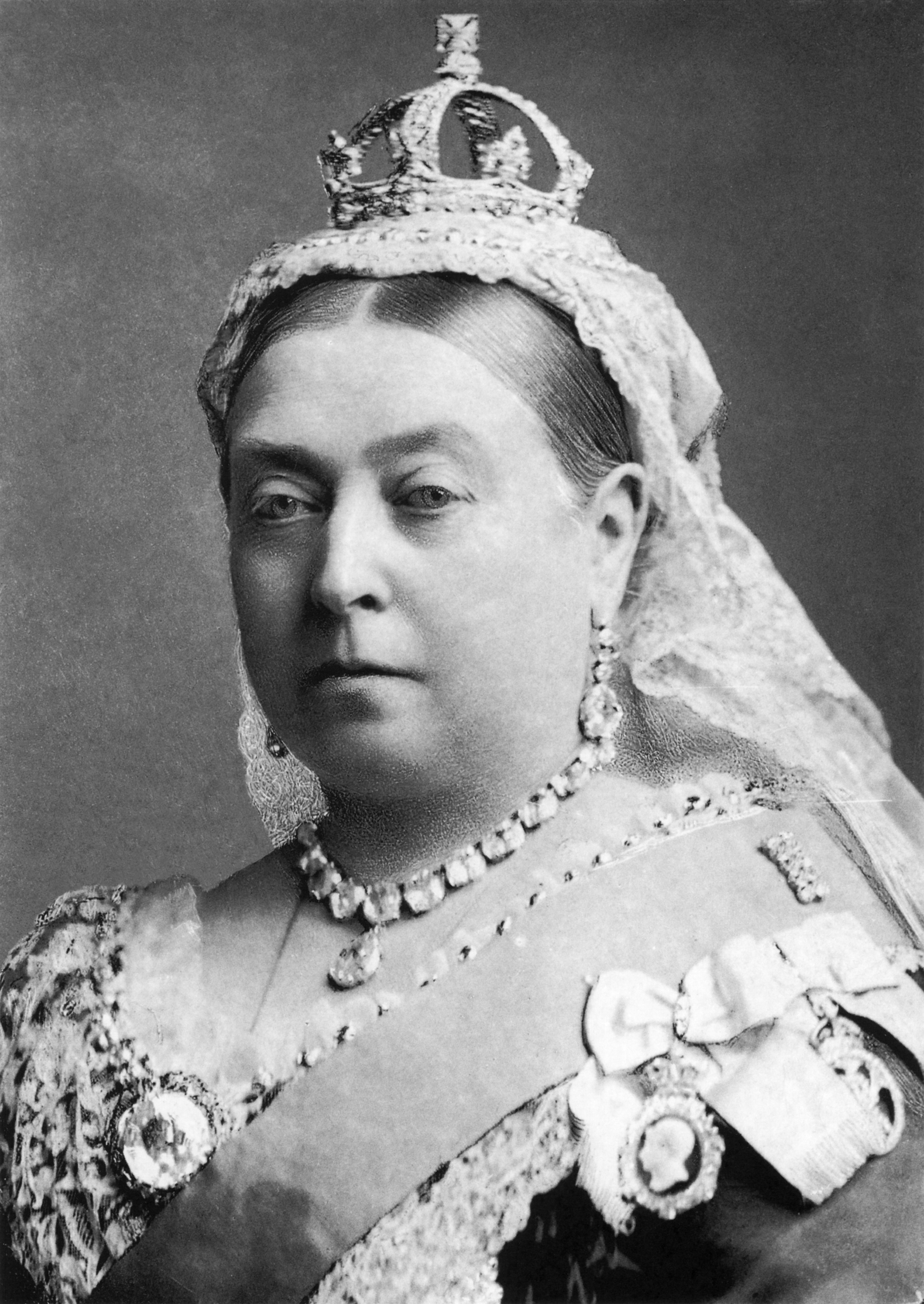Královna Viktorie citáty a výroky
Královna Viktorie: Citáty anglicky

Allegedly, 11-year-old Victoria's spoken response in 1830 when her governess let her know that one day she would be Queen. As discussed in Becoming Victoria by Lynne Vallone (2001) on p. 44 http://books.google.com/books?id=qFOPtHFpmAYC&lpg=PP1&pg=PA44#v=onepage&q&f=false-45, "the anecdote survives in a number of competing versions", some aspects of which the author calls "dubious". And as mentioned on p. 45, Victoria's own recollection of learning she would someday become Queen was "I cried much on learning it—& even deplored this contingency".
Disputed
Extract from the Queen's Journal, Tuesday, 20th June 1837.
Kontext: Since it has pleased Providence to place me in this station, I shall do my utmost to fulfil my duty towards my country; I am very young and perhaps in many, though not in all things, inexperienced, but I am sure that very few have more real good will and more real desire to do what is fit and right than I have.
“It is worth being shot at to see how much one is loved.”
After being shot at by Roderick Maclean on 2 March 1882, as quoted in Stanley Weintraub, Victoria. Biography of a queen (1987), p. 450.
Comment made after Salisbury lost power to Gladstone in 1892, quoted in Queen Victoria: A Biographical Companion by Helen Rappaport (2003), p. 331 http://books.google.com/books?id=NLGhimIiFPoC&lpg=PP1&pg=PA331#v=onepage&q&f=false.
In an 1870 letter, quoted for example in All For Love: Seven Centuries of Illicit Liaison by Val Horsler (2006), p. 104 http://books.google.com/books?id=PFyvAAAAIAAJ&q=%22most+anxious+to+enlist%22#search_anchor. At the bottom of this page http://www.historyofwomen.org/suffrage.html, it is mentioned that the comment was written in a letter to Sir Theodore Martin in reaction to news "that Viscountess Amberley had become president of the Bristol and West of England Women's Suffrage Society and had addressed a ... public meeting on the subject." The author of the page, Helena Wojtczak, says here http://www.historyofwomen.org/about.html that while other sources often fail to give the context, she "researched and discovered the source of the quote".
“Affairs go on, and all will take some shape or other, but it keeps one in hot water all the time.”
Letter to King of the Belgians, Nuneham, 15th June, 1841 (Note: Nuneham was the house of Edward Vernon Harcourt, Archbishop of York).
On discovering that Bolivia is landlocked and its capital lay high in the mountains, having ordered the Royal Navy to bombard it. This anecdote is recounted in a few published sources such as The Rough Guide to Bolivia by James Read (2002), but no scholarly historical sources have been located.
Disputed
Zdroj: Letter (16 May 1860), published in Dearest Child: Letters Between Queen Victoria and the Princess Royal Previously Unpublished edited by Roger Fulfold (1964), p. 254. Also quoted in the article "Queen Victoria's Not So Victorian Writings" http://www.victoriana.com/doors/queenvictoria.htm by Heather Palmer (1997).
“We are not interested in the possibilities of defeat; they do not exist.”
December 1899 letter to Arthur Balfour during the "Black Week" of the Boer War, as quoted in The Columbia Dictionary of Quotations (1993), p. 539 http://books.google.com/books?id=4cl5c4T9LWkC&lpg=PP1&pg=PA539#v=onepage&q&f=false.
According to Lady Gwendolen Cecil, it was a verbal statement to Mr. Balfour in Windsor Palace, as recorded in her biography of her Father, Life of Robert, marquis of Salisbury, volume 3 (1921), p. 191 http://archive.org/stream/lifeofrobertmarq03ceciuoft#page/190/mode/2up/search/we+are+not+interested+in+the+possibilities+of+defeat
Gentile folly: the Rothschilds, by Arnold Leese.
This quotation is attributed to Victoria, with varying stories. In Caroline Holland's Notebooks of a Spinster Lady, published in 1919, the story is put without clear details: "Her remarks can freeze as well as crystallise. There is a tale of the unfortunate equerry who ventured during dinner at Windsor to tell a story with a spice of scandal or impropriety in it. "We are not amused," said the Queen when he had finished" http://www.archive.org/stream/cu31924028287195#page/n279/mode/2up. Other stories describe it as a saying after viewing a production of Gilbert and Sullivan's HMS Pinafore or a reaction to a groom-in-waiting of hers, the Hon. Alexander Grantham Yorke, either to a theatrical production he put on, or to a risqué joke he told to a German guest and which the Queen asked him to repeat after the guest laughed loudly. The quote appeared in a chapter of the 1885 novel The Talk of the Town by James Payn, but without being attributed specifically to Queen Victoria. On p. 219 http://books.google.com/books?id=jugXAAAAYAAJ&pg=PA219#v=onepage&q&f=false of the book, a character named William Henry is cut off in the midst of telling a story, and the author compares this to an anecdote involving an unnamed member of the Royalty: "There was once a young gentleman who was endeavouring to make himself agreeable as a raconteur in the presence of Royalty. When he had done his story, the Royal lips let fall these terrible words: 'We are not amused.' Poor William Henry found himself in much the same position." A book from two years later, the 1887 Royal Girls and Royal Courts by Mary Sherwood, does attribute the quote to Victoria in a chapter on English Royalty, in the following anecdote from p. 182 http://books.google.com/books?id=m_xZAAAAMAAJ&pg=PA182#v=onepage&q&f=false: "Sir Arthur Helps, however, told a different story. Sitting low down the table, he described the members of the household as chatting and laughing, when the Queen—looking grimly at them—remarked, 'We are not amused!' which must have had a cooling effect." This article http://www.grammarphobia.com/blog/2011/07/nosism.html says that the Yale Book of Quotations by Fred Shapiro also gives Victoria's secretary Arthur Helps as the source, and that it was reported in an 1887 newspaper article, although since this was two years later than James Payn's anecdote in The Talk of the Town this might cast some doubt on the validity of the story. More recent documents suggest that the attribution of the quote to Victoria is in fact misguided, instead belonging to Queen Elizabeth I. An interview with Princess Alice, Countess of Athlone in 1976 states that the Princess asked her grandmother about this quotation and that Victoria said that she had never said the famous phrase (see the clip at 5:56 in this video http://www.youtube.com/watch?v=qS4hAbHLszw, from the 2001 BBC program Reel Victorians: Nineties Girls http://ftvdb.bfi.org.uk/sift/title/698971; the clip is from an interview that originally aired in the 1977 BBC program Royal Heritage: Victoria, Queen and Empress - The Princess Alice Interview http://ftvdb.bfi.org.uk/sift/title/746389).
Disputed
